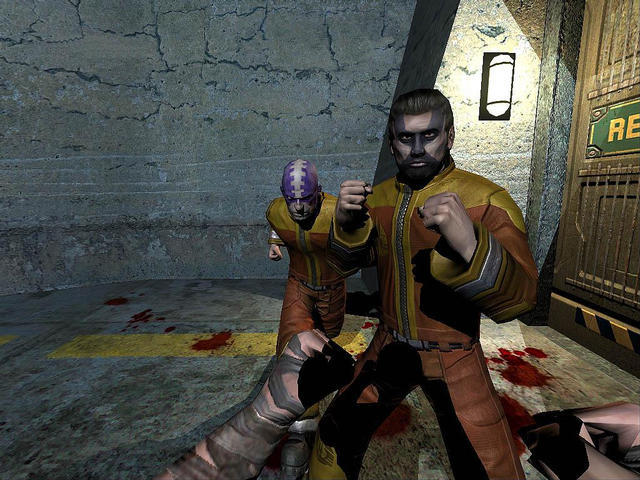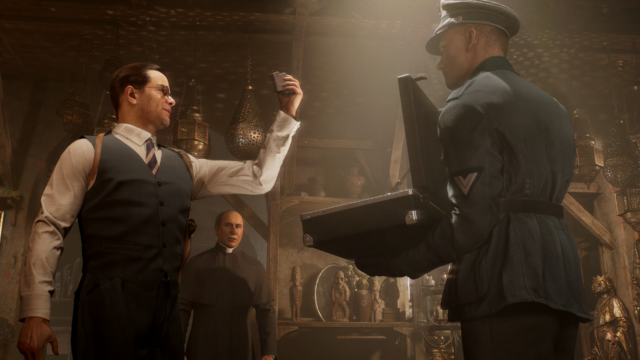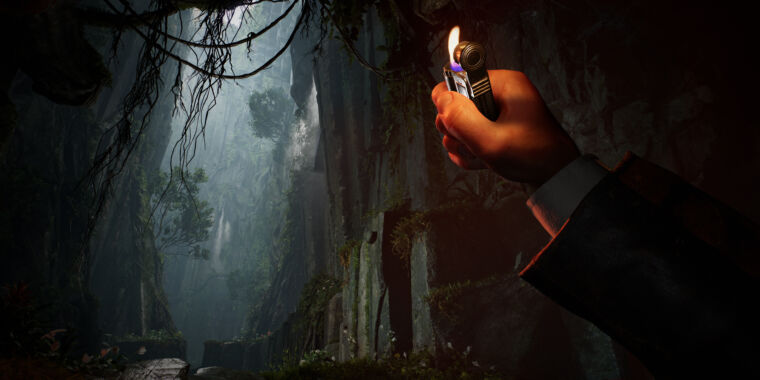At first glance, Wolfenstein: The New Order developer MachineGames might seem like an awkward fit for the first (non-Lego) Indiana Jones video game since the Wii era. While there’s some overlap in the over-the-top Nazi villain department, the “shoot your way through every obstacle” nature of the new Wolfenstein games doesn’t seem to lend itself well to Indy’s more free-wheeling, adventurous exploration style.
For the upcoming Indiana Jones and the Great Circle, director Jerk Gustafsson said that going from first-person shooter to a “MachineGames adventure” style change has been a difficult tightrope walk for the developers. While the team never wanted to prevent the player from using their revolver during action scenes, there was the potential that giving a player that freedom would allow them to “just shoot their way through” in a way that’s antithetical to Jones’ character.
To help avoid this problem, Creative Director Alex Torvenius said most of the game has been balanced so that “it’s dangerous to shoot your gun and it’s dangerous to be shot at.” Guns-blazing action will be a winning strategy in some in-game situations, but “[there are] many scenarios where you can go through the environment without using guns at all,” he continued.
The design is focused on “trying to make sure you should foremost try to use your wits and your whip… navigating around an enemy rather than through them,” Torvenius added. “The only solution in this game is absolutely not to shoot your way through.”

The hand-to-hand combat of the Chronicles of Riddick games was a big inspiration for MachineGames.
Gustafsson said this design was heavily inspired by the early 2000s Chronicles of Riddick games, which many of the MachineGames team worked on directly. As in those games, the combat focus in Great Circle is more on hand-to-hand fights or using improvised weapons gleaned from the immediate environment.
Gustafsson said he “likes to see the whip as the entry point to combat,” and during a short gameplay session viewed by Ars Technica, we saw that whip being used to disarm unaware enemies, trip them up from a sentry position, or simply to swing in from above to get the jump on them. We also saw Indy doing the tried-and-true “throw a bottle to make the guards think I’m over there” trick and using nearby hammers and even rolling pins as handy melee or throwing weapons. The revolver only came out occasionally during the demo, such as to take out a sentry on a far-off scaffolding.
The change in style from the guns-first Wolfenstein games has been a fun one for the studio, Gustafsson said. “You can see on the team the step from going from what we are so used to doing—the guns blazing, crazy shooting experience that we have done—to something that is much more lighthearted… It has taken some time to shepherd that transition for sure, but it has been refreshing for the team, for the studio.”
“Ignore the shooting part”
To help shepherd that transition, Gustafsson said the team decided to just “ignore the shooting part” early in the game’s development, in part because “we know that we can do it well, we know that we can get that right.” Instead, the early focus was on a scene that incorporated the many types of non-shooting tasks that would be integrated into the game, such as exploration, stealth, and traversing around trap-filled environments, as well as the aforementioned hand-to-hand combat.

Set in 1937 during the gap between Raiders of the Lost Ark and The Last Crusade, The Great Circle starts with a break-in that focuses on a priceless relic in Jones’ home. Pursuing that break-in leads Jones and a team of unlikely allies to a set of mystical stones arranged in the titular “great circle” of locations that map a full arc around the globe. In pursuing those stones, the team is trying to outrun Dr. Emmerich Voss, a Nazi scientist who sees the artifacts as an otherworldly force that’s key to a grand global conspiracy.
The scenery-chewing villain and McGuffin-filled plot are all in service to gameplay focused heavily on exploration. Using a period-appropriate camera, Indy can take photos of various clues and detritus around the environment, providing the player with important spoken and written background information as he does (it’s like an old-fashioned version of Metroid Prime‘s scan visor). All those photos and clues go into a continually updated scrapbook that the player can consult at any time to solve minor mysteries and figure out what to do next.
